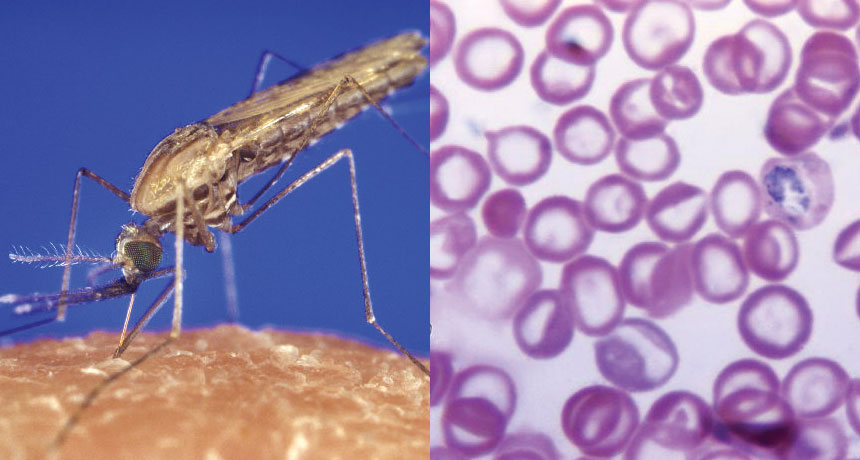A new study shows that natural human immune responses can recognize and kill malaria parasites before they can spread to mosquitoes.
The work forms a starting point for a new line of vaccine research, according to a team of scientists from the University of Glasgow, Radboud University Medical Center, The Netherlands, and Harvard T.H. Chan School of Public Health.
The study was published June 5, 2019 in Science Translational Medicine. First author Kathleen Dantzler, PhD ’17, of Stanford conducted the research when she was a student at Harvard Chan School.
Malaria is caused by Plasmodium falciparum, a parasite that depends on mosquitoes and humans for its transmission. When an infected mosquito bites a human, it injects parasites that can lead to sickness and death.
Some of the pathogenic parasites develop into germ cells that can then be transmitted to another mosquito. Part of that parasite development takes place in red blood cells in bone marrow.
In a study of blood samples from more than 500 malaria patients from Cameroon, Burkina Faso, Malawi, and The Gambia, the researchers discovered proteins from the germ cells of the malaria parasite on the outside of red blood cells.
These proteins are recognized and targeted by the immune system. This response results in a decrease in the number of developing germ cells that can infect mosquitoes. A vaccine that enhances this immune response could potentially prevent the spread of malaria.















